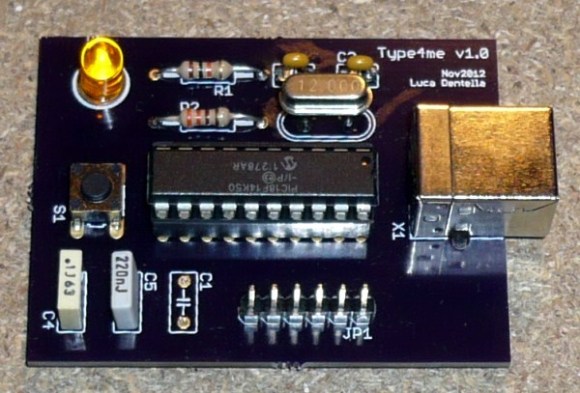A while back, I bought a cheap spectrum analyser via AliExpress. I come from the age when a spectrum analyser was an extremely expensive item with a built-in CRT display, so there’s still a minor thrill to buying one for a few tens of dollars even if it’s obvious to all and sundry that the march of technology has brought within reach the previously unattainable. My AliExpress spectrum analyser is a clone of a design that first appeared in a German amateur radio magazine, and in my review at the time I found it to be worth the small outlay but a bit deaf and wide compared to its more expensive brethren. Continue reading “Perhaps It’s Time To Talk About All Those Fakes And Clones”
copy5 Articles
Well, That Was Quick: Heng Lamp Duplicated
That didn’t take long at all! We covered a pretty cool lamp with a novel magnetic switch mechanism, and [msraynsford] has his version laser cut, veneered, a video posted on YouTube (embedded below), and an Instructable written up before we’d even caught our breath.
For those who missed it, the original Heng lamp is a beautiful design with a unique take on a magnetic switch. As with the original, the secret sauce is a switch inside that’s physically held closed by the two magnets. It’s a pretty clever mechanism that looks magical to boot.
[msraynsford]’s version replaces the floating spheres with floating cylinders, which are easier to fabricate in layers on a laser cutter, but otherwise the copy is fairly true to the aesthetics of the original. Pretty sweet!
Continue reading “Well, That Was Quick: Heng Lamp Duplicated”
The Sincerest Form Of Flattery: Cloning Open-Source Hardware
We’re great proponents (and beneficiaries) of open-source hardware here at Hackaday. It’s impossible to overstate the impact that the free sharing of ideas has had on the hacker hardware scene. Plus, if you folks didn’t write up the cool projects that you’re making, we wouldn’t have nearly as much to write about.
We also love doing it ourselves. Whether this means actually etching the PCB or just designing it ourselves and sending it off to the fab, we’re not the types to pick up our electronics at the Buy More (except when we’re planning to tear them apart). And when we don’t DIY, we like our electrons artisanal because we like to support the little guy or girl out there doing cool design work.
So it’s with a moderately heavy heart that we’ll admit that when it comes to pre-built microcontroller and sensor boards, I buy a lot of cheap clones. Some of this is price sensitivity, to be sure. If I’m making many different one-off goofy projects, it just doesn’t make sense to pay the original-manufacturer premium over and over again for each one. A $2 microcontroller board just begs to be permanently incorporated into give-away projects in a way that a $20 board doesn’t. But I’m also positively impressed by some of the innovation coming out of some of the clone firms, to the point that I’m not sure that the “clone” moniker is fair any more.
This article is an attempt to come to grips with innovation, open source hardware, and the clones. I’m going to look at these issues from three different perspectives: the firm producing the hardware, the hacker hobbyist purchasing the hardware, and the innovative hobbyist who just wants to get a cool project out to as many people as possible. They say that imitation is the sincerest form of flattery, but can cloning go too far? To some extent, it depends on where you’re sitting.
Continue reading “The Sincerest Form Of Flattery: Cloning Open-Source Hardware”
Type4me Is A Hardware Clipboard For Your Digital Copy And Paste Needs

It doesn’t happen often, but every now and again we find ourselves wanting for a more extensible cut and paste experience. Most notably we’ve searched for something that makes is very easy to keep multiple things in the clipboard and paste them as needed. Although we’ve tried several software offerings nothing really made it up to grade, but this hardware clipboard looks very promising. [Luca Dentella] calls it Type4me as it functions as a USB keyboard.
The PIC 18F14K50 enumerates as a USB keyboard, allowing it to send characters anywhere the cursor is located. It sends whatever string is stored inside, with an optional return character at the end. In addition to its keyboard properties it also establishes a serial connection, which allows you to push new strings to the device. This setup does require you to do copy or type your strings into a serial terminal, along with one of four special commands which are parsed by the microcontroller. One of these commands allows you to save the string to EEPROM so that it will be persistent through a power cycle.
The pasting back to the computer takes a mere push of the button. We’ve embedded the video demo after the break. It’s in Italian but there are English subtitles. Near the end [Luca] shows off the device as a macro button for gaming.
Continue reading “Type4me Is A Hardware Clipboard For Your Digital Copy And Paste Needs”
PDF Redaction Still Not Working

Facebook’s internal valuation was revealed this week thanks to shoddy PDF redaction. Court documents from a settlement between Facebook and ConnectU showed that Facebook values itself at $3.7 billion, much less than the $15 billion that was speculated during the Microsoft investment. The AP uncovered this by cutting and pasting from the redacted court document. It’s the same thing we showed in our PDF redaction screencast last summer… and it will never cease to be funny.
[photo: Bryan Veloso]













